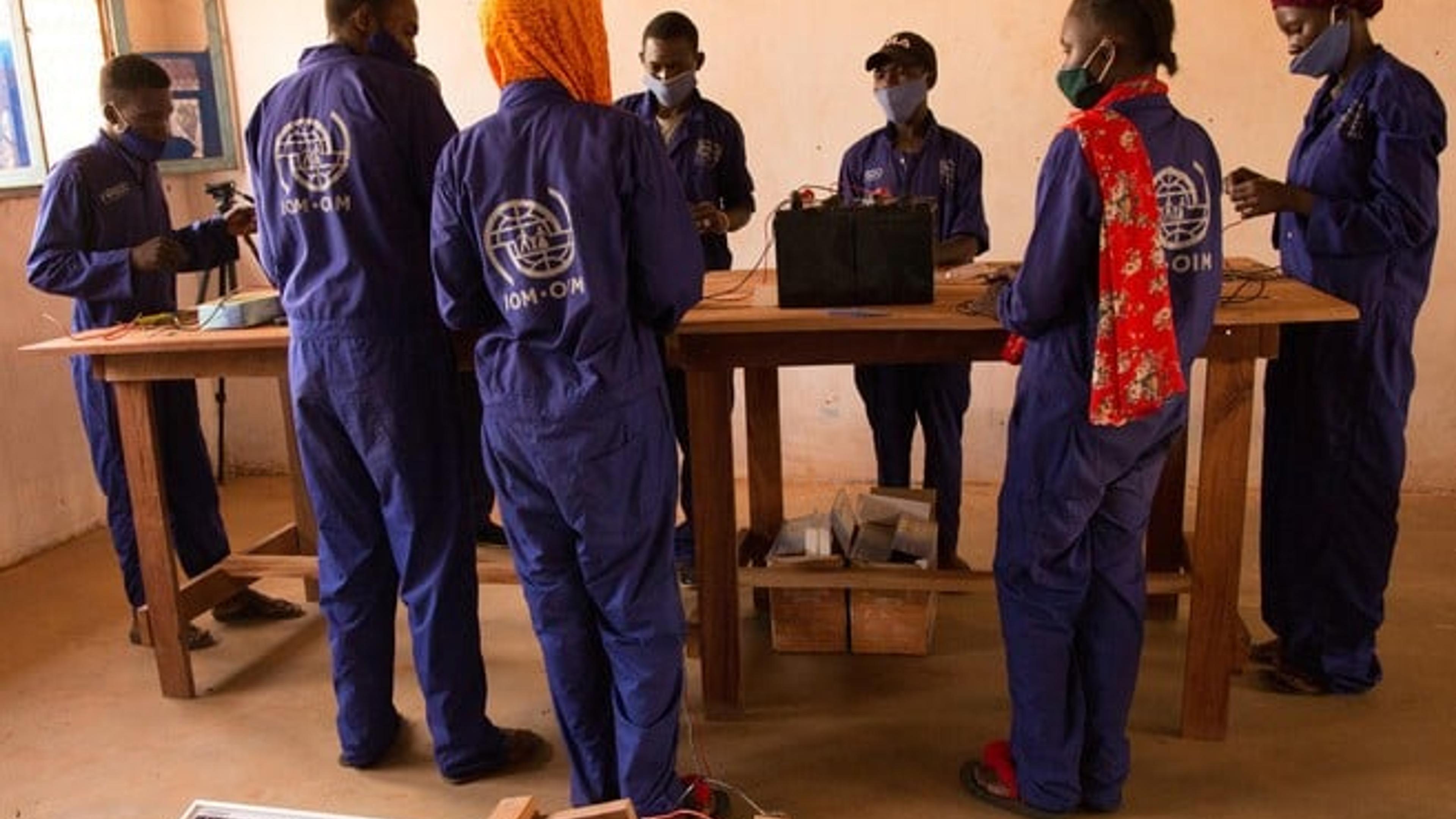Closing the loop on humanitarian waste management using sustainable procurement and innovative finance
 © IOM
© IOMWhat is the challenge?
Humanitarian organisations bring in bulk waste when responding to crises. The waste includes plastics, e-waste and rubber, that are used to reduce human suffering. Without proper long-term management, this waste can negate the humanitarian principle of Do No Harm. Incorrect storage and disposal of harmful products can cause negative health impacts such as ingestion of toxic chemicals, attraction of vectors such as mosquitos and rats, and negative environmental impacts such as air, soil, and water contamination.
What is innovative about the project?
This project recognises that there is currently no waste management service model supported by the humanitarian system to close the loop on sustainable procurement. It aims to address this gap by exploring the capacity of using a transparent, cost-effective innovative financing model to subsidize waste management services that can be procured by UN agencies alongside products. This will ensure that humanitarian organizations are responsible for the waste they generate as part of their commitment to sustainable procurement and sustainable development.
What are the expected outcomes?
The use of an innovative finance model is expected to strengthen local businesses, enhance job creation and stimulate markets, whilst also supporting more responsible waste business practices by strengthening them to collaborate with humanitarian structures, in line with Grand Bargain commitments and the localization agenda. In addition, it will look at how innovative finance can be used to motivate individual behaviour change to repair and recycle products at approved service locations, whereby beneficiaries are incentivised to turn in waste by for example, receiving vouchers/credits/cash for their waste.
Who are the project partners?
This project is led by IOM who will partner with specialized organisations and one or more private sector actors.